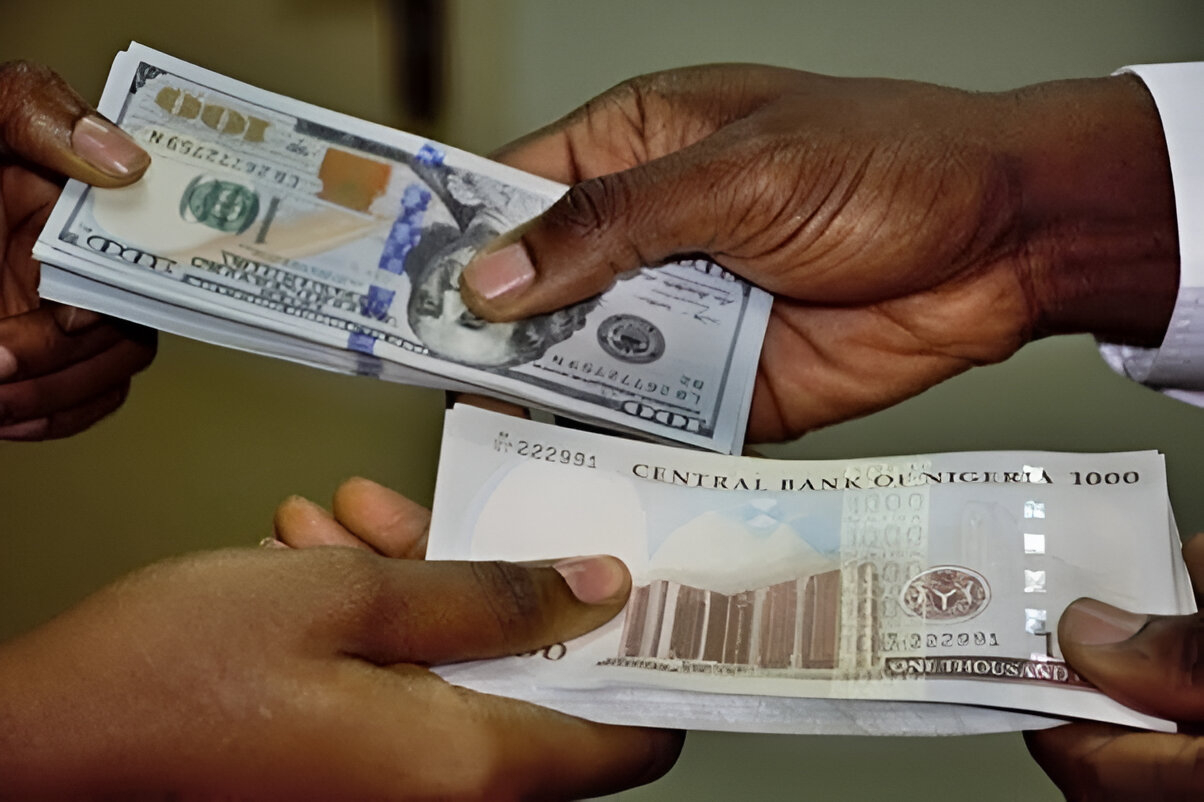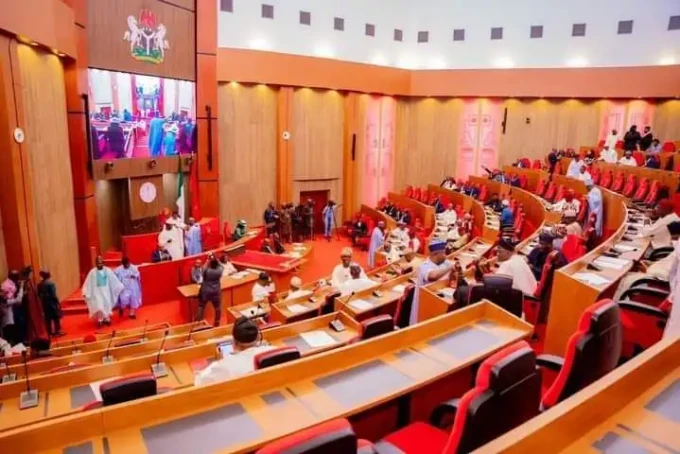The steep depreciation of the naira since June 2023 has left a significant mark on Nigeria’s trade landscape, particularly in the manufacturing sector. According to the National Bureau of Statistics (NBS), the foreign trade in manufactured goods surged by an impressive 93% year-on-year to N8.022 trillion in the third quarter of 2024 (Q3’24), compared to N4.157 trillion recorded in Q3’23. This sharp increase highlights the profound effect of currency fluctuations on trade dynamics.
Export Boom in Manufactured Goods
Revenue from the export of manufactured goods skyrocketed by 419.9% to N1.04 trillion in Q3’24, a substantial leap from the N200.19 billion recorded in Q3’23. This growth also marks a 116.5% increase compared to N480.82 billion in Q2’24. Despite this significant rise, manufactured goods exports accounted for only 5.1% of the country’s total exports in Q3’24, compared to 1.93% in Q3’23.
Surge in Imports of Manufactured Goods
The value of manufactured goods imports rose by 76.4% to N6.981 trillion in Q3’24, up from N3.957 trillion in Q3’23. Imports constituted 47.6% of total imports during the period, a slight increase from 46.8% in Q3’23. This growth underscores Nigeria’s heavy reliance on imported manufactured goods, even as the local currency continues to lose value.
Naira’s Depreciation and Its Role
The floating of the naira by the Central Bank of Nigeria (CBN) in mid-2023 saw its value plummet from N477 to the dollar to as low as N1,738 by November 2024. This massive depreciation has inflated the cost of imports and simultaneously created opportunities for export growth as Nigerian goods become cheaper for foreign buyers.
Key Trading Partners and Commodities
China maintained its position as Nigeria’s top import partner, followed by India, Belgium, the USA, and Malta. On the export side, Spain, the USA, France, the Netherlands, and Italy were the leading partners. Crude oil, liquefied natural gas, and cocoa beans were the top exports, while motor spirit, gas oil, and durum wheat topped the import list.
The staggering trade growth in manufactured goods highlights the dual impacts of naira depreciation: a surge in export revenue and an increase in the cost of imports. However, this reliance on foreign partners and commodities signals the need for Nigeria to strengthen its domestic manufacturing sector to achieve long-term economic resilience.












I think the Nairas depreciation could actually be a good thing for Nigerias economy in the long run. Lets embrace the change!
Disagree. Currency depreciation usually leads to inflation, affecting the purchasing power of citizens negatively.
I think maybe Nigeria should consider switching to a different currency altogether to avoid the impact of Naira depreciation. Thoughts?
I think the Naira depreciation could actually be a good thing for Nigerias trade. It might lead to more competitive prices and boost exports!
Depreciation hurts purchasing power and can lead to inflation, not a win-win situation.
I think the Naira depreciation is a blessing in disguise. Its shaking things up and forcing us to innovate. Embrace the chaos!
I think Nigeria should focus on boosting local production to reduce dependency on imports, even if it means sacrificing short-term export profits.
Local production is key for economic independence. Short-term profits arent everything. Fully support this viewpoint.
I think we should just switch to bartering goods instead of dealing with all this currency drama. Whos with me?
I think the Nairas depreciation is a blessing in disguise for Nigerias manufactured goods trade. Its time to embrace the chaos!
Disagree. Naira depreciation hurts consumers and businesses, disrupts stability. Chaos isnt a solution.
I think Nigeria should focus more on promoting locally made goods to boost the economy, even if it means restricting imports.
I think the Naira depreciation could actually benefit Nigerias manufactured goods trade by making exports more competitive globally.
I think the Nairas depreciation could actually benefit Nigeria in the long run by making its exports more competitive globally.
I think the Naira depreciation could actually benefit Nigerias manufactured goods trade in the long run. It might attract more foreign buyers seeking cheaper products.
I think the Naira depreciation could actually benefit Nigerias manufacturing sector in the long run. Embrace the chaos!
I think the Nairas depreciation could actually benefit Nigerias manufactured goods trade by making them more competitive in the global market.
I think the Naira depreciation could actually be a good thing for Nigerias economy in the long run. Lets embrace the change!
I think Nigeria should focus on exporting more unique cultural goods instead of manufactured items. #EmbraceDiversity #ThinkOutsideTheBox
I think the Nairas depreciation could actually benefit Nigerias manufactured goods trade in the long run. Lets embrace the change!
I think the Naira depreciation could actually benefit Nigeria by making our exports more competitive in the global market.
I dont buy it. Naira depreciation isnt always bad for trade. Maybe its time for a fresh perspective on this issue.
I think the Nairas depreciation could actually benefit Nigerias manufactured goods trade in the long run. Lets see how it plays out! 🤔📈
I think the Nairas depreciation could actually benefit Nigerias manufactured goods trade in the long run. Thoughts?
I think the Naira depreciation might actually benefit Nigerias trade in the long run. Lets see how it plays out!
It could also lead to higher inflation and increased costs for consumers. Lets hope for the best.
I think the Nairas depreciation might actually benefit Nigerias manufactured goods trade in the long run. Lets embrace the change!
Disagree. Depreciation leads to higher import costs, hurting local manufacturing competitiveness.
I think the Naira depreciation could actually benefit Nigerias manufactured goods trade in the long run by making exports more competitive globally.
I think Nigeria should focus more on promoting local goods over imports, even if it means restricting certain imports. Prioritize local industries!
I think the Naira depreciation could actually benefit Nigerias manufactured goods trade in the long run. It might attract more foreign buyers looking for cheaper products.
I think the Nairas depreciation could actually benefit Nigerias manufactured goods trade by making exports more competitive. Lets think outside the box!
I think Nigeria should focus on promoting local industries instead of relying heavily on imports. Lets support our own goods!
I think Nigeria should embrace barter trade instead of relying on foreign currency. Lets swap goods for goods! #UnconventionalOpinion.
I think Nigeria should consider adopting a barter system for trade to combat the impact of Naira depreciation. Just a wild thought!
I believe the Naira depreciation could actually benefit Nigerias manufactured goods trade in the long run by making exports more competitive globally.
I think the Naira depreciation could actually benefit Nigeria by making our goods more competitive globally. Lets embrace the change!
Do you think the Nairas depreciation will ultimately benefit Nigerias manufactured goods trade, or will it lead to more challenges? Lets discuss!
Is the depreciation of the Naira really boosting Nigerias export of manufactured goods, or is it just increasing the cost of imports? 🤔
Do you think the export boom in manufactured goods is sustainable amidst the surge in imports and Naira depreciation? How can Nigeria balance this trade dynamic?
Do you think Nairas depreciation is a blessing in disguise for Nigerias manufactured goods trade, or a ticking time bomb waiting to explode? Lets discuss!
I wonder if the government has a plan to stabilize the Naira and boost local manufacturing. Its crucial for our economys growth.
Do you think the Nairas depreciation will lead to more local production or just make imported goods more expensive? Lets discuss!
Do you think the export boom in manufactured goods is sustainable amidst the surge in imports and Naira depreciation? Lets discuss!
Do you think Nigeria should focus more on boosting local manufacturing to reduce dependence on imports amid Naira depreciation?